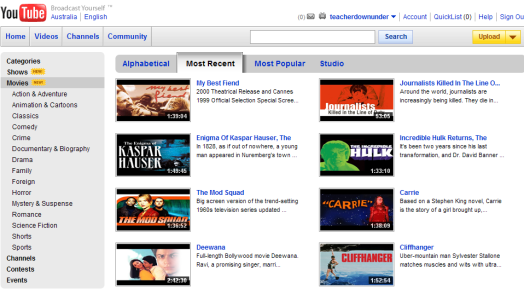I’m finding it harder and harder to get to my RSS feeds in my Google Reader. I’ve no doubt this is in large part due to Twitter consumption. The temptation is always there to just check in to see what’s going on and before you know it you’re off exploring 8, 9, 10 links to new stuff that’s just downright interesting. Of course, as you’re exploring those, the hypertext environment that feeds off these links takes you other places and before you know it, two hours have elapsed!
Well, I’m glad I found some time because I stumbled on a link to a blog post by Adam Corson-Finnerty, a Library Administrator from Pennsylvania. He was referring to Academic libraries, but I think his message has meaning for school librarians too. It’s time we shifted our mindset if we are going to remain at all relevant in years to come. Read what he has to say;
Get out of Real Estate
Close as many libraries as you can.
Get out of the Study Hall business.
Your remaining facilities should be recast as “learning labs” or “learning environments.”
Downsize or eliminate your high-density-storage facilities.
Get in to or get out of the Book Storage Business.
Convert your storage facility into a regional storage facility that is self-funding, or
Pay another institution to store any books that you absolutely have to own, and
Pay this institution to loan you books as you need them from their combined holdings, or
Have this institution scan any book that you need and produce your own POD copy, and give it to the patron to keep (you really don’t want it back).
Get out of the book-buying business—only buy books when they are requested.
Keep only what is heavily used
Use “scan on demand” ILL services wherever possible
Use print on demand
Use in-house or nearby print-on-demand service for quick production.
Re-deploy your people
Get your people out of supervising the study hall, standing-behind-a-service-desk, giving directions to the nearest bathroom.
Retrain Librarians as “Informationists” or “Informaticians” or whatever new term breaks them out of the old mold. Your new librarians will be full members of academic research teams, or will “team” with individual scholars, including undergraduates. Many on your staff will have to become data curators, if not database creators.
Focus on the delivery of digital resources, services and tools
Continue and strengthen your role as Information Broker for the entire University
Emphasize training patrons in information-finding skills.
Emphasize digital self-help.
Emphasize collaborative tool-development with faculty
Emphasize collaborative resource-building, and resource-sharing with other Research Libraries
Emphasize physical and digital preservation of assets.
Lots of what he says here rings true for me. What about you? I’m sure there is still much to be said about the future of libraries. How we respond to prompts like these is the truly difficult and confronting challenge facing us, but face them we must if we want to remain relevant.
Adam provided a link to No Brief Candle: Reconceiving Research Libraries for the 21st Century. You can download the PDF at that link.

![Reblog this post [with Zemanta]](https://i0.wp.com/img.zemanta.com/reblog_e.png)


